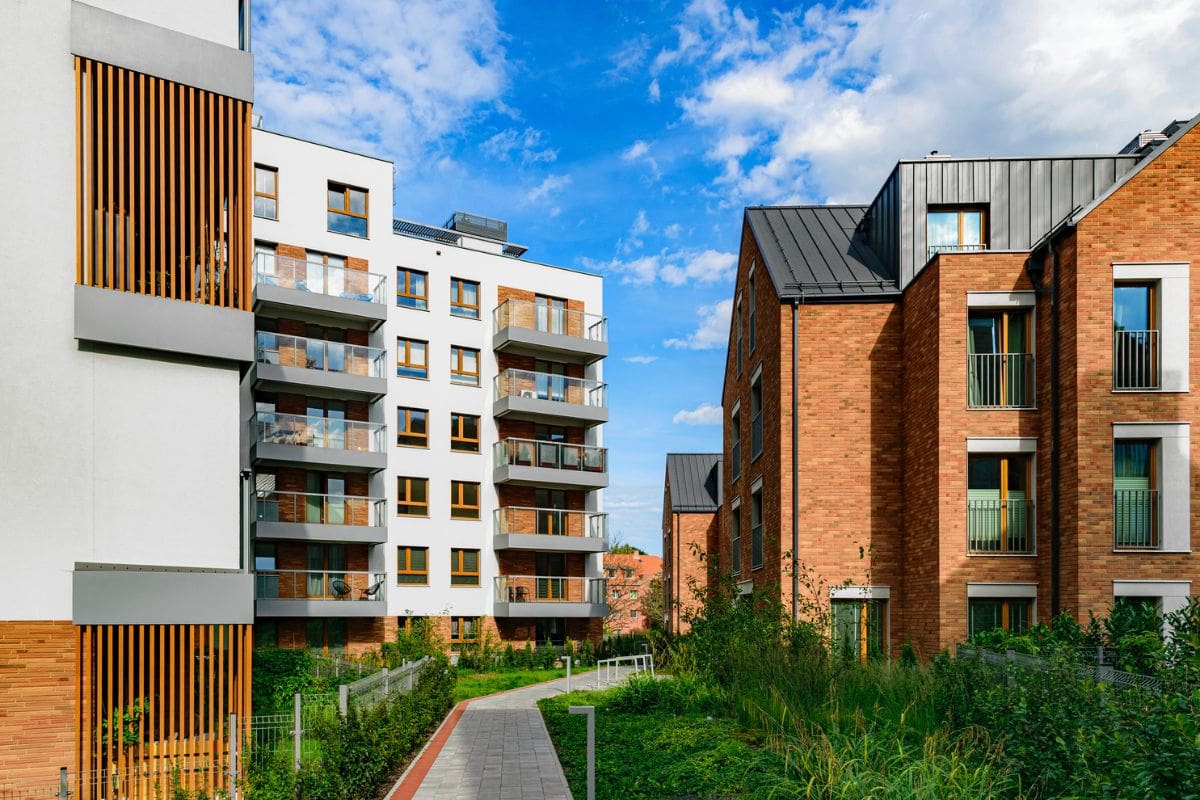“What exactly do conveyancing solicitors do?” is one of the questions we get asked frequently here at Cobb Farr Estate Agents.
Understanding the vital role these legal professionals play in buying and selling a property can help everything run more smoothly, without unnecessary delays or problems.
That’s why we’ve created this article for you – to explain what a conveyancing solicitor does, why they are so important, the typical costs involved and what to do if something goes wrong during your property transaction.
What is a conveyancing solicitor?
A conveyancing solicitor (also called a property solicitor) is a legal professional who handles the legal side of buying, selling, and transferring property.
They carry out essential property searches, manage legal documents, draft contracts, communicate with the other party’s solicitor, ensure the buyer obtains a valid property title and manage the exchange of contracts and completion.
Their hard work ensures everything is legal, protecting the clients’ interests and that the property transfer is as easy and stress-free as possible.
What does a conveyancing solicitor do?
A conveyancing solicitor has many responsibilities and tasks to complete to ensure everything runs smoothly. Here’s a breakdown of what they do when their client is buying or selling a property.
Buying a property
If you are buying a property, the conveyancing solicitor’s main role is to ensure that you know exactly what you are buying.
This includes searching for any potential issues that could affect your investment, coming up with solutions, ensuring the relevant taxes (including Stamp Duty) are paid and that the legal side of the property transaction is taken care of. For example, they will…
- Carry out property searches.
- Check the title deeds, boundaries, and ownership, and look for anything the buyer needs to know.
- Ensure transfer of ownership is legal and correctly documented with the Land Registry.
- Ensure your mortgage lender has all the information they need.
- Draw up contracts and ensure all conditions are met.
- Help you communicate with the sellers’ solicitors if you have queries.
- Provide advice on Stamp Duty.
- Pay the seller’s solicitor on exchange and completion days.
- Ensure all conditions of the contract are met.
- Provide legal advice throughout.
Selling a property
On the other hand, if you are selling a property, your conveyancing solicitor’s role is to protect your legal rights and ensure the legal sale of the property.
This includes checking relevant documentation, ensuring taxes are paid and transferring funds between you and the buyer.
For example, they will…
- Check the title deeds, examine and verify ownership, and check boundaries and restrictions.
- Provide you with the correct property information forms (such as the TA6) and send them to the buyers’ solicitor.
- Communicating with the buyers’ solicitor on your behalf if there are any queries.
- Ensuring all contracts are fair and accurate.
- Coordinating the exchange of contracts and ensuring all conditions are met.
- Provide advice on Capital Gains Tax and ensure it’s correctly calculated and paid.
- Transfer funds between you and the property buyer.
What searches do conveyancing solicitors do?
Property searches are one of the key tasks that conveyancing solicitors must carry out when their client is buying a property.
These searches help uncover any potential issues that could affect the value of the property, the investment and your ability to live there safely. They include:
- Local Authority Search: This checks planning permission, building regulations and any nearby roadworks and planned developments that could affect the property you want to buy.
- Environmental Search: As the name suggests, this considers the local environment and how it could affect your property. They will look for conservation areas, flood risks, contamination and land stability issues, among others.
- Water and Drainage Search: This search looks at where sewers and water connections are located, highlighting any potential problems and suggesting solutions.
If your conveyancing solicitor discovers problems during these searches, don’t panic! They will inform you of what they have found and suggest the steps you can take to reduce or mitigate the risk, protecting your investment.
What do solicitors charge for conveyancing?
The fee charged for conveyancing can vary significantly, depending on the value of the property, the complexity of the sale and various additional factors.
Usually, this falls somewhere between £850 and £1500 for both buyers and sellers.
This covers legal fees, search fees, land registry fees, bank transfer charges and Stamp Duty or Capital Gains Tax submissions.
We advise that you always get a clear quote upfront and check whether this includes third-party costs, hidden charges or other extra fees. This will help you budget more effectively and find the best conveyancing solicitor for your needs.
How long does the conveyancing process take?
The conveyancing process usually takes between 8 – 12 weeks.
Having said that, the complexity of the transaction, the responsiveness of the buyer, seller and other parties and the efficiency of the conveyancing solicitor can all affect this timeline.
How can I choose the right conveyancing solicitor?
Usually, the best way to find a conveyancing solicitor is to ask your friends and family for recommendations. Ask those who have recently bought or sold a property in Bath, Bradford on Avon or Somerset and use this as a basis for your search.
We also recommend that you get in touch with us here at Cobb Farr to discover who we believe could be the right conveyancing solicitor for you.
Of course, you can also search online, but if you do so, be sure to read the reviews thoroughly first.
Tips for finding a great conveyancing solicitor in the UK
Get multiple quotes from several solicitors and compare their fees.
Ensure that fees are itemised and that there are no hidden costs. Also, check the small print carefully, especially if you are considering a “no move, no fee” arrangement to avoid unpleasant surprises.
Assess carefully.
Ask your friends and family for reviews, check Google Reviews or other website reviews and look for testimonials that highlight positive experiences and strong client relationships.
- Look for qualifications and experience handling conveyancing transactions.
- Ensure they’re members of the relevant professional associations, including the Solicitors Regulation Authority (SRA), Council for Licensed Conveyancers and Law Society of England and Wales.
- Find out if they are on your mortgage lender’s approved panel to avoid any additional fees.
- Look for local expertise: Your solicitor should have experience in Bath, Bradford on Avon, Wiltshire or Somerset and be aware of local property trends and regulations.
- Ask if they have any specialisations. Some conveyancing solicitors specialise in specific types of properties, such as new builds or complex transactions. Look for one that aligns with your needs.
If you’re buying a home in Bath, Bradford on Avon, Wiltshire or Somerset, please get in touch to ask about conveyancing solicitors.
“I’m not happy with my conveyancing solicitor – what can I do?”
Unfortunately, sometimes things don’t go to plan, and your conveyancing solicitor doesn’t provide the service that you expected. If this happens, you can follow these steps:
1. Speak about your concerns with the conveyancing solicitor or firm directly.
2. If the matter remains unresolved, file a complaint with the Legal Ombudsman or Council for Licensed Conveyancers (for non-solicitor conveyancers).
3. Look for an alternative. If nothing else works, consider changing to a different conveyancing solicitor. However, be aware that this can cause delays in your property transaction.
FAQ: Conveyancing Solicitors: What Do They Do?
1. What is conveyancing?
Conveyancing is a legal process that transfers the legal ownership of a property from one person to another. This involves various legal and admin tasks, including property searches, contract creation and ensuring full compliance with laws and regulations.
2. What does a conveyancing solicitor do?
Conveyancing solicitors specialise in property law and handle the legal aspects of a property purchase or sale. They liaise with the other party’s solicitor, ensure all legal requirements are met and complete the legal and admin tasks required.
3. Why do I need a conveyancing solicitor?
You need a conveyancing solicitor when buying or selling a house to protect your interests and ensure everything is legal. They will navigate complex legal documents, advise you of potential issues that could affect your investment, handle negotiations and provide you with peace of mind.
4. How much do conveyancing solicitors charge?
The cost of a conveyancing solicitor can vary, depending on various factors. Some offer fixed-rate conveyancing while others base their fee on the value of the property. We advise you to get a transparent quote upfront and check whether there are any hidden costs or extra fees before you make a decision.
5. How do I speed up the conveyancing process?
If you’d like to complete the conveyancing process faster, there are several steps you can take. Get a mortgage in principle before you begin your property search, have all documents to hand and respond immediately to your solicitor’s requests to avoid any unnecessary delays.
6. What is a conveyancing environmental search?
A Conveyancing Environmental Search looks at the past uses of the land and whether there could have been contamination. If so, your solicitor will advise you on how to proceed.
7. What do conveyancing fees include?
Conveyancing fees include legal fees and conveyancing disbursements to be paid on your behalf to third-party services for the property searches.
8. How long does conveyancing take for a new build?
For new builds, conveyancing is usually completed faster, and contracts are often exchanged within 28 days of issue. However, this can take longer if there are any enquiries. Your conveyancing solicitor will do their best to resolve any issues promptly.
Summary
Conveyancing solicitors play a vital role in your property transaction, protecting your investment and providing peace of mind.
Whether you’re buying or selling a home in Bath, Bradford on Avon, Wiltshire or Somerset, understanding what conveyancing solicitors do will help the process run more smoothly, ensure everything is legal and help you budget more effectively.
Here at Cobb Farr, we are property experts who can suggest excellent local conveyancing solicitors who can meet your needs. Call us today for guidance.


